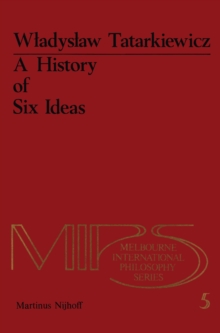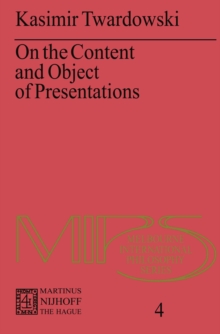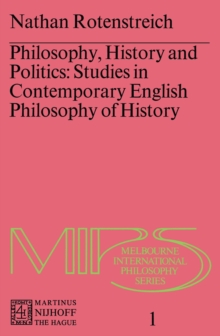
Analysis of Happiness Paperback / softback
by W. Tatarkiewicz
Part of the Melbourne International Philosophy Series series
Paperback / softback
Description
Learned men have been wntmg about happiness since antiquity: from Greek times, there is Aristotle's treatise, included in the Nicomachean Ethics; from Roman, Seneca's De Vita Beata.
Later came the Christian writings on this subject, especially another De Beata Vita, written by St.
Augustine. The point of view is different from Aristotle's or Seneca's but the subject remains the same.
In the Middle Ages also treatises on happiness were produced, and these eventually became part of the 'summae'.
St. Thomas devoted q. 2-5 of the Prima Secundae to happiness and q. 3 1-39 bear on it indirectly. In more modern times works on happiness continued to be written.
Some authors carried on the Christian tradition which maintained that happi- ness is only attainable in the next world; to these belong the earliest works written in Polish.
Other treatises - especially those of the Age of Reason - hold the opposite concept, that the only happiness man can expect is to be found on earth. In the 18th century there were so many of these treatises that it was possible to produce a whole anthology: The Temple of Happiness, or as it was originally called Le Temple du bonheur, ou recueuil des plus excellents traites sur Ie bonheur (2nd ed. , 1770).
Information
-
Item not Available
- Format:Paperback / softback
- Pages:372 pages, 372 p.
- Publisher:Springer
- Publication Date:21/12/2011
- Category:
- ISBN:9789401013826
Information
-
Item not Available
- Format:Paperback / softback
- Pages:372 pages, 372 p.
- Publisher:Springer
- Publication Date:21/12/2011
- Category:
- ISBN:9789401013826










